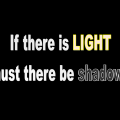The Case for Faith by Lee Strobel
Objection #1 – Since Evil and Suffering Exist, a Loving God Cannot
During the winter Sue Stottmeister was jogging through a park in Rockville, as she always did before picking up her children from school. But on this day she would not complete her run. Instead, the Sunday school teacher was attacked and brutally beaten. When police found her, she had been lying in the snow for five hours. She died on the way to the hospital, leaving a grieving family and a shaken community.
Whenever something like this happens, people often wonder: Why does God allow evil to exist if he’s able to stop it? Why do bad things happen to good people? These are questions that have caused many to doubt God’s existence, or his goodness, or his power. It’s a question that even those of faith must wrestle with. The problem of evil bothered journalist Lee Strobel so much, that he researched and wrote a book to answer this and other hard questions about God.
Strobel was an atheist when he decided to examine the historical evidence for and against the existence of God. His journey led to his conversion and a vibrant faith in Christ. But Lee still struggled with questions that seemed to have no logical answer—such as why a loving God would allow someone to murder a devoted Christian mother like Sue Stottmeister or what about the horrible evils of the Holocaust, the Killing Fields of Cambodia, the genocide of Rwanda, the torture chambers of South Africa, or what is happening in Sudan now? Where is God? Why didn’t or doesn’t He stop it? Does God care? Why does God allow such evil?
For the answer to the questions, Lee interviewed Christian philosopher Peter Kreeft of Boston College. Kreeft gave Strobel the traditional teaching regarding why evil is abroad in the world. Humans cannot enjoy both free will and a world free from sin. “Once God chose to create human beings with free will,” Kreeft said, “it was up to them . . . as to whether there was sin or not.” God created “the possibility of evil, but it was humans who actualized that potentiality.”
Kreeft then offered Strobel a second explanation for the reality of evil. He suggested that God might tolerate certain short-range evils in order to achieve long-range goods that humans cannot foresee.
Imagine, he said, a bear in a trap, and a hunter who wants to liberate him. The hunter tries and fails to win the bear’s confidence, so he has no choice but to shoot the bear full of tranquilizers. The terrified bear thinks the hunter is trying to kill him. He doesn’t understand that the hunter is acting out of compassion.
“I believe,” Kreeft said, “God does the same thing to us sometimes, and we can’t comprehend why he does it any more than the bear can understand the motivations of the hunter.” We simply have to trust God.
Finally, Kreeft also concluded, people don’t get away with evil acts, even though they may seem to. God will one day settle the accounts; evildoers will be punished for the suffering they’ve caused.
In the meantime, we must remember that God weeps with those who weep—that his own son was acquainted with sorrows and grief. And he will help us to bear the agony of the world’s evil.
In addition to the basic questions of life that we are considering in our inaugural sermon series, “iWONDER?”, we’ll take a look at some of the major objections to the Christian faith that Lee Strobel discusses in his book, The Case for Faith published by Zondervan. But we’ll only take some snapshots of the book, so if you’d like to research the answers yourself or would like to have your faith recharged pick up the book. You’ll enjoy the read and the realization that as Corrie ten Boom wrote of her time in a Nazi concentration camp, “No matter how deep our darkness, [God] is deeper still.”

0 Comments